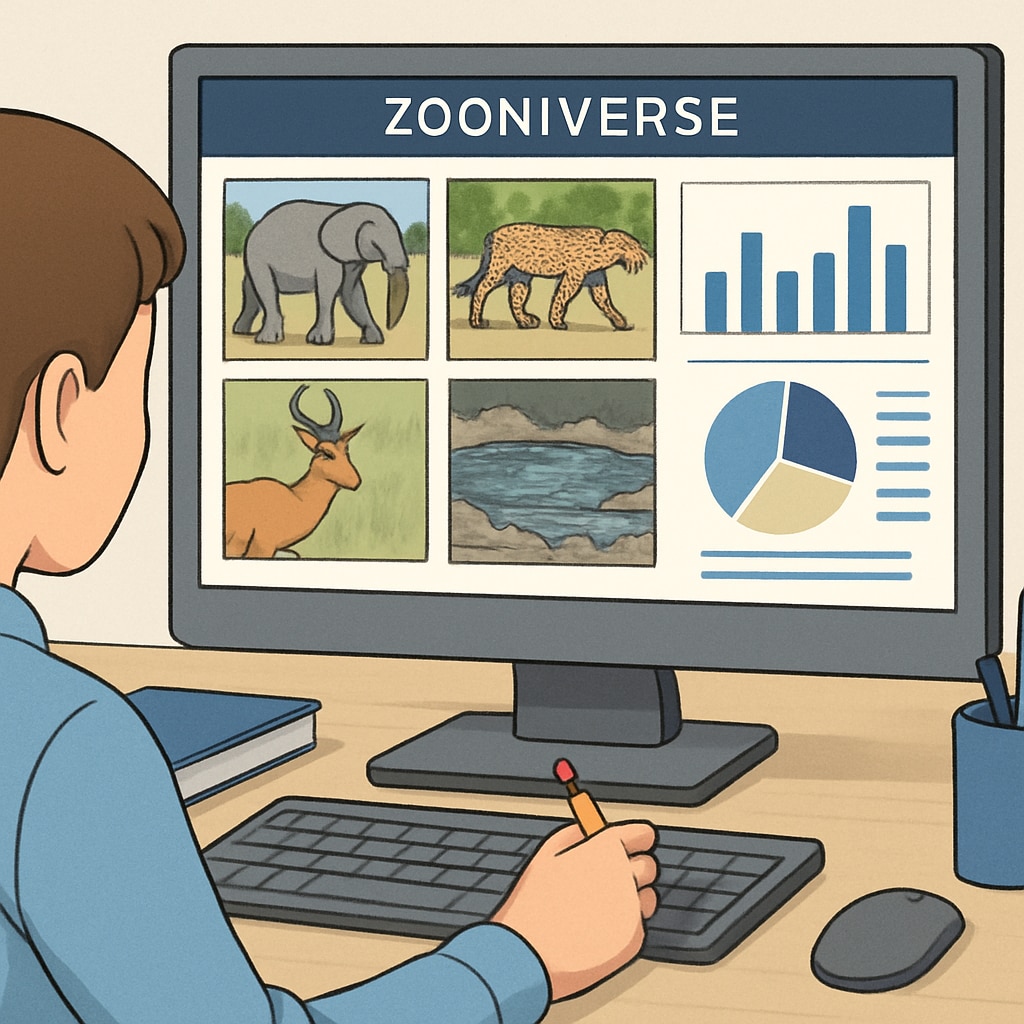The concept of “citizen science” has gained momentum in recent years, and platforms like Zooniverse are taking it to the next level. By enabling K12 students to actively participate in real-world scientific projects, Zooniverse offers a unique opportunity to blend education with meaningful contributions to global research. This article explores how educators can integrate Zooniverse into classrooms, inspiring young minds to become citizen scientists while developing their scientific literacy and research skills.
What Is Zooniverse and How Does It Foster Citizen Science?
Zooniverse is the largest and most popular platform for online citizen science. It connects researchers with volunteers from all over the world to collaborate on a diverse range of scientific tasks. These projects span multiple disciplines, including astronomy, ecology, medicine, and history. For example, students might classify images of galaxies, transcribe ancient manuscripts, or identify animals in camera trap photos.
Unlike traditional science education, which often focuses on theory, Zooniverse emphasizes hands-on engagement. By contributing to real-world datasets, students gain a deeper understanding of scientific processes, from hypothesis formulation to data analysis. Moreover, the platform is designed to be user-friendly, making it accessible for K12 students with varying levels of experience.

Integrating Zooniverse into K12 Classrooms
For educators, Zooniverse provides a versatile tool to enrich STEM (Science, Technology, Engineering, and Mathematics) curricula. Here are some strategies for effectively incorporating the platform into classroom learning:
- Project-Based Learning: Assign students to specific Zooniverse projects that align with your curriculum. For instance, astronomy students can work on galaxy classification, while biology students can study wildlife populations.
- Interdisciplinary Approach: Combine science with other subjects like history or art. Projects involving handwritten document transcription offer a unique way to integrate humanities into STEM education.
- Group Collaboration: Encourage teamwork by assigning small groups to analyze data collectively. This fosters communication and problem-solving skills.
- Critical Thinking Exercises: After completing a project, have students discuss the implications of their findings and how they contribute to broader scientific questions.
By embedding Zooniverse into the curriculum, teachers can create an engaging learning environment that bridges the gap between textbook knowledge and real-world application.
Benefits of Citizen Science for Students
Engaging with Zooniverse offers numerous advantages for K12 students beyond academic achievements:
- Skill Development: Students learn data analysis, pattern recognition, and scientific reasoning, which are essential for future careers in STEM fields.
- Global Citizenship: By contributing to international research, students develop a sense of responsibility and awareness of global challenges.
- Inspiration: Realizing that their work contributes to genuine scientific discoveries can ignite a lifelong passion for science.
- Accessibility: The platform is free and requires only internet access, making it an excellent resource for schools with limited budgets.
For educators, Zooniverse also provides a way to assess students’ understanding of scientific concepts in a practical context, ensuring that learning outcomes are both measurable and meaningful.

Examples of Impactful Zooniverse Projects
To inspire students and educators alike, here are a few remarkable projects currently available on Zooniverse:
- Galaxy Zoo: Participants classify galaxies based on their shapes, helping astronomers understand the universe’s structure.
- Snapshot Serengeti: Volunteers identify animals captured in camera trap images, contributing to wildlife conservation efforts.
- Planet Hunters: Students analyze light curves from stars to discover new exoplanets.
- Penguin Watch: Volunteers count penguins in photographs to monitor population trends and their response to climate change.
These projects not only advance scientific knowledge but also demonstrate the power of collective effort. By participating, students become part of a global community working toward shared goals.
Conclusion: A Gateway to Lifelong Learning
Zooniverse is more than just a platform; it’s a gateway to lifelong learning and discovery. By incorporating Zooniverse into K12 education, teachers can cultivate curiosity, foster essential skills, and empower students to see themselves as active contributors to science. As a result, these young citizen scientists can play a role in addressing some of the world’s most pressing issues, from environmental conservation to space exploration.
To explore Zooniverse and its vast array of projects, visit Zooniverse’s official website. For more information on the principles and impact of citizen science, check out Citizen Science on Wikipedia.
In conclusion, platforms like Zooniverse demonstrate that science is not confined to laboratories—it is a collaborative endeavor that welcomes participants of all ages and backgrounds. For K12 students, the journey begins here.


